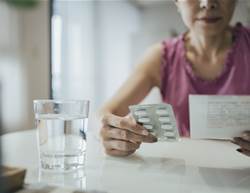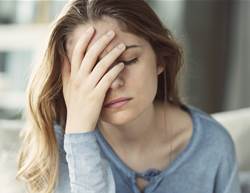If you’re conscious that you might be drinking a bit more than is healthy, you’re not alone. Evidence shows that many women in their 40s and 50s are drinking as a way to self-soothe and as means of escape from the pressures of a super-busy life. In fact one study last year found that one in five women between 45 and 60 drink at ‘binge-drinking’ levels.
So aside the from the cost to your hip pocket, it turns out that alcohol can have an impact on perimenopause, too. “Alcohol can increase perimenopausal symptoms,” explains alcohol and binge drinking coach Kathryn Elliott.
Here are just some of the effects drinking can have on menopausal symptoms:
- Depresses the central nervous system, so it can make depression and anxiety worse.
- Can cause spikes in temperature, increasing hot flushes and night sweats.
- Disrupts your circadian rhythms so you’ll have less deep sleep.
- As a diuretic, you’ll need to go to the toilet more, also interrupting sleep.
- Worsens hot flushes and night sweats.
- Affects cognitive function, making brain fog worse.
What's more, women have less of the essential enzyme, dehydrogenase, that helps to break down alcohol during digestion, so we tend to absorb more alcohol into our bloodstream than men. And it’s a sad fact that age, also slows down our ability to process alcohol.
So whether you’re considering quitting alcohol completely, or just easing up on the amount you’re drinking, Kathryn has some advice: “The most important thing is that you step back and get a bit more mindful about your drinking. It can be so habitual that we're often reaching for a drink, and not even thinking about it. So start noticing when that first thought for a drink comes in? And ask why am I having it? Do I really want to have a drink? Sometimes, you might actually just be thirsty or wanting to reward yourself, because it's the end of a workday.”
Kathryn takes us through some of the tactics her clients use, and she shares how she decided to quit drinking four years ago in this episode of our podcast Thriving in Menopause.









.png&h=193&w=250&c=1&s=1)


